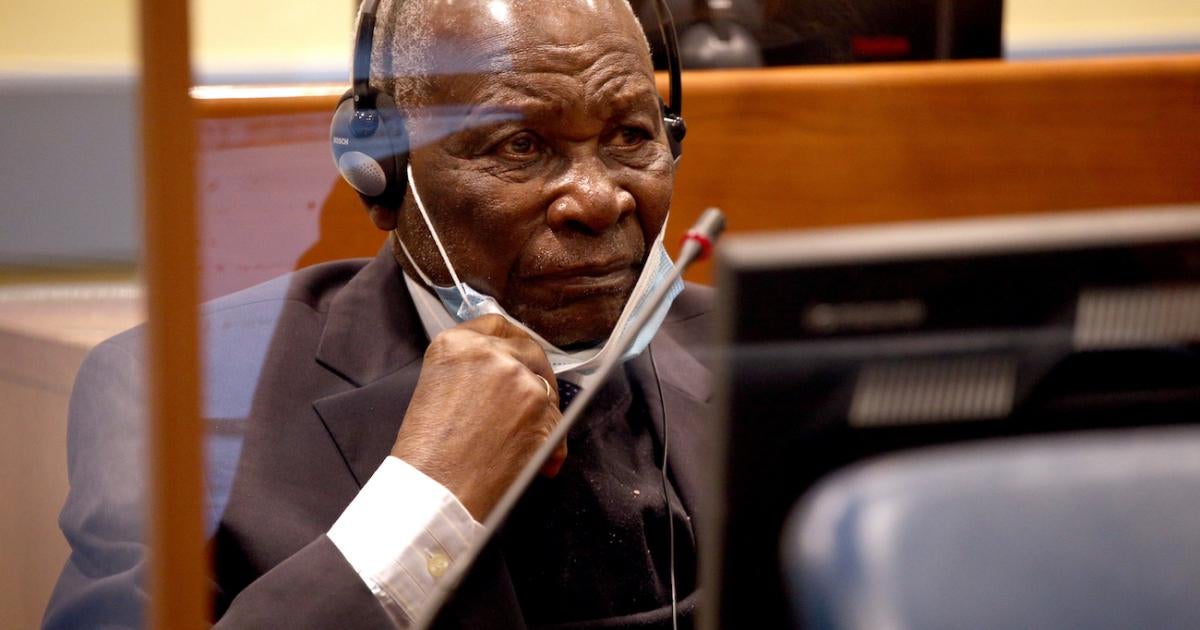Trial of Rwanda Genocide Suspect Begins in The Hague
The trial of Félicien Kabuga, for crimes committed during the 1994 Rwandan genocide, begins today in The Hague.

This is a significant step in efforts to ensure accountability for planning, ordering, and carrying out the genocide in Rwanda. Kabuga was first indicted by the International Criminal Tribunal for Rwanda (ICTR) in 1997. As a chief financier of the Radio Télévision Libre des Mille Collines, which during the genocide instructed people to erect barriers and carry out searches, named persons to be targeted and pointed out areas to attack, he is accused of being a mastermind of the genocide. Kabuga, now 89 years old, is also accused of aiding and abetting the Interahamwe – a militia attached to the ruling party who hunted down and slaughtered Tutsi men, women, and children. He is charged with genocide, incitement to commit genocide, conspiracy to commit genocide, and crimes against humanity. He is being tried by the International Residual Mechanism for Criminal Tribunals. Between April and July 1994, Hutu political and military extremists orchestrated the killing of approximately three quarters of Rwanda’s Tutsi population, leaving more than half a million people dead. Many Hutu who attempted to hide or defend Tutsi and those who opposed the genocide were also killed. Twenty-eight years later, many perpetrators of the genocide, including former high-level government officials and other key figures behind the massacres, have been brought to justice.
The majority have been tried in Rwandan courts. Others have gone before the ICTR or domestic courts in Europe and North America. In contrast to progress in trying perpetrators of the genocide, very few members of the ruling Rwandan Patriotic Front (RPF) have been held to account for war crimes and crimes against humanity committed by the RPF in 1994. As they took over the country, RPF troops killed thousands of predominantly Hutu civilians.
These killings were not equivalent to the genocide, but victims and families have a right to see justice done. Protecting most RPF members from prosecution for these crimes has not only led to a sense that the RPF is above the law but may have hindered social healing in the aftermath of the genocide. All perpetrators of serious crimes committed three decades ago should be held to account, just like Kabuga. Questions over Kabuga’s age and whether he is fit to stand trial have only underscored how urgent it is for cases to move ahead.
Read the full article at the original website
References:
- https://www.hrw.org/sites/default/files/media_2020/12/rwanda-leave-none-to-tell-the-story.pdf
- https://www.hrw.org/africa/rwanda
- https://www.irmct.org/en/news/start-trial-prosecutor-v-felicien-kabuga-scheduled-29-and-30-september-2022-and-5-and-6-0
- https://www.irmct.org/en
- https://www.hrw.org/news/2014/03/28/rwanda-justice-after-genocide-20-years
- https://www.voanews.com/a/kabuga-fit-to-stand-trial-over-rwanda-genocide-un-tribunal/6616463.html
